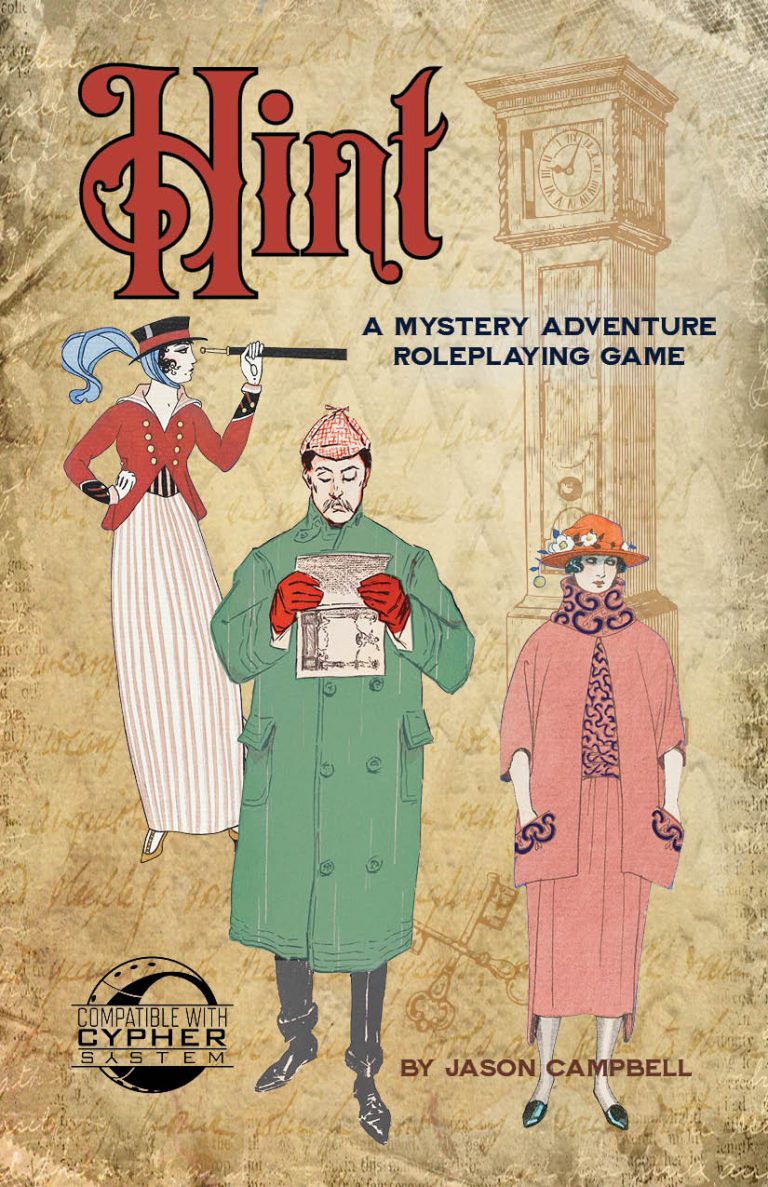By Jason Campbell
That’s a dangerous title, right? “Off the Track”, does that mean the adventure I’d prepped railroaded the PCs? Let’s take a look.
Recently I ran a game of Dungeons & Dragons 5e for a group of players who’d never played before. It was a bachelor party where they were looking for something different for the weekend. They had heard about D&D but never played it. I have done many intro sessions before and my plan was to do a brief review of the rules, distribute pre-generated characters and dive into the adventure, explaining the details of the rules as they came up.
The adventure I used was one that I wrote and have run a few times, so I knew it well. It’s what Mike Shea would call a pear shaped adventure – the beginning is set, the adventure is set to end a certain way, but the middle – how the story progresses – is up to the players. It’s pretty easy to do this, there’s just a number of plot points that the adventure needs to progress, but those points could happen at many different places.
The adventure begins with the PCs all traveling in a caravan that crashes just before they reach a village. There’s a few mysteries that the PCs will encounter in the village that tie together. The one assumption built into the adventure is that because the caravan stops right outside the village the PCs will help the others in the caravan to the village, help the authorities with the caravan wreckage, or otherwise get to the village. But these are ttrpg players, so we all know what happens when you make assumptions, right?
So the adventure begins with a crash as lightning hits the wagon ahead of the PCs in the caravan. That wagon is now on fire with a mother and her 2 children barely escaping and crying that their husband/father is inside. The wagon driver is on the ground unconscious. Then I ask the players what their characters would do. A couple of them help the driver and the family, while others investigate the back of the wagon to see what loot was there. They proceed to grab a couple of chests while the other travelers are caught in the chaos. The PCs find that the father is dead in the wagon, and the others bring the captured chests into their own wagon and discuss whether they should help the travelers and townspeople or just take the stolen loot and turn in the other direction.
This is a moment of truth for the GM. I could envision a few possibilities:
- Tell the players that the bridge is out behind the caravan and there’s no way to go now but towards the village. This has the advantage that it forces the players towards the scenario that you’ve prepared, but it’s a “railroad” because you’re limiting their choices based on what you’ve prepared.
- Let the players do whatever they want. Since I’d only prepped the village, this would mean improvising the entire session. I could also let them turn around and just put the village I’d prepped wherever they go. This is something of a “quantum ogre” scenario. It would work, but I should really only use parts of the encounters so I’m not taking away all player choice.
- Allow them choice but nudge them towards the village. When they opened the chests they found mostly mundane possessions like clothing, but they also had a letter describing a shop which sold magic items in the village, that was the destination the family’s father was seeking.
I chose the third option. I had a consideration beyond the normal concerns of a GM in that these were brand new ttrpg players, so I had to think about the impressions I was giving to the players about our hobby. I wanted to avoid the first option so that the players got the idea that this wasn’t just a vast board game, their choices really mattered. If pressed I would have played out the second option. I’ve GM’d a long time and I could have come up with enough encounters on the fly to make an enjoyable adventure. I felt the adventure I’d prepped was strong and the players would have fun, so I used the third option. If they got the clue and still chose to turn around, I would have improvised the entire session. It also played into what I knew about the players from the first ten minutes of play – they were playing greedy characters who were likely to be intrigued at the prospect of magic items.
The players ended up going into the village but it was late so no stores were open, only the tavern. The PCs went into the tavern to get some information on the magic store, which gave me an opportunity to give them some plot threads. They met some locals and got some clues about the scenario I’d set up, eventually getting hired to explore a dungeon. If the players weren’t interested in the plot thread I’d thrown out, I would have followed their lead and improvised a heist and escape, or whatever fit into their interests.
I think this was a good compromise because I didn’t force them into any choices but I nudged them towards a fun set of encounters. What do you think? Let us know in the comments below.





